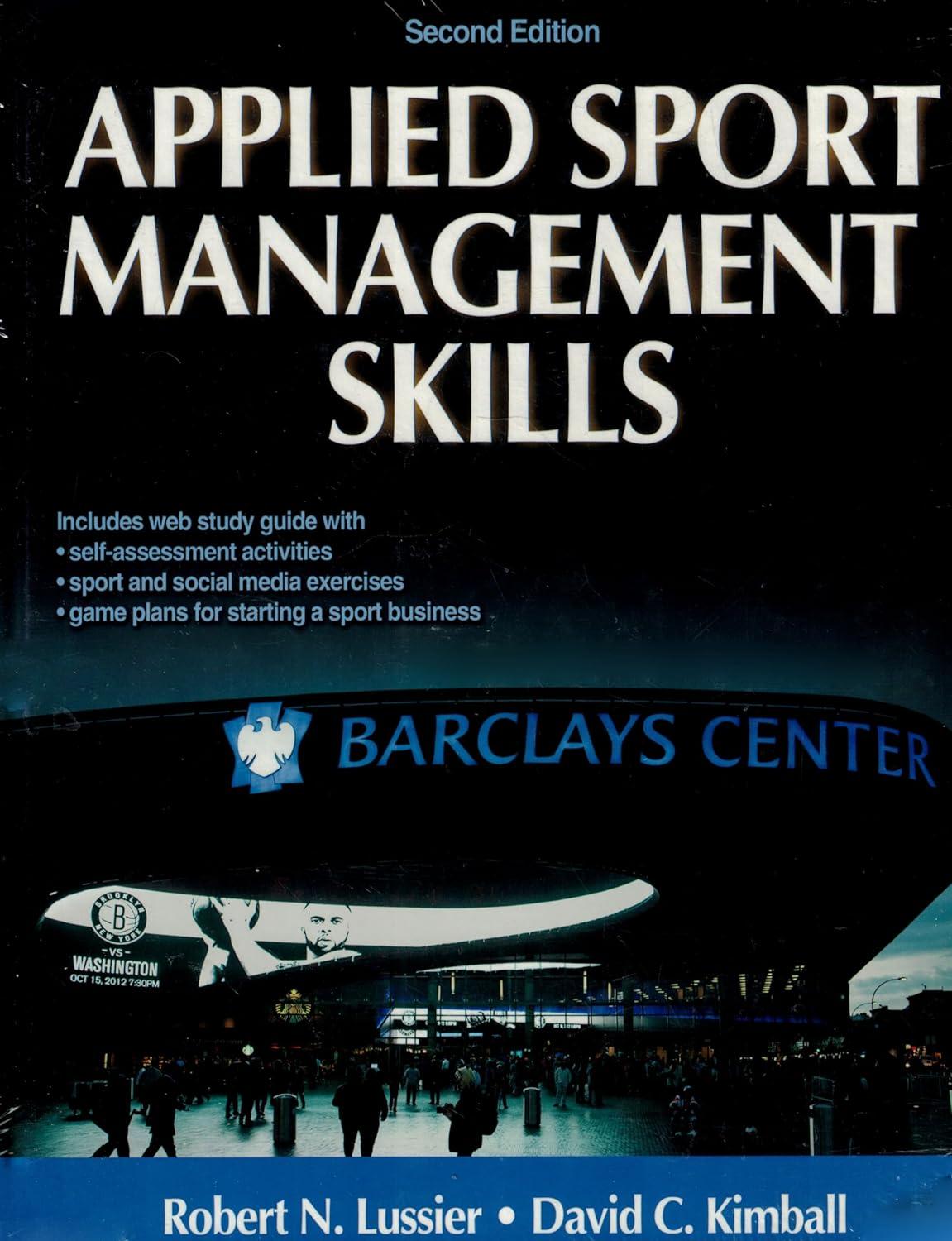The scandals associated with the 2002 Salt Lake City Olympics (the bribery involved in the site location
Question:
The scandals associated with the 2002 Salt Lake City Olympics (the bribery involved in the site location process and the judging practices used to award the figure skating medals, among others) forced the IOC to reevaluate its practices. The IOC faced two problems that had been difficult to manage. First, there was the long-standing problem of illegal doping by athletes. Second, the committee looking to bring the Olympics to Beijing in 2008 had to address long-standing human rights violations attributed to China’s leaders. Issues of further concern included a lack of media freedom and free speech and the mistreatment and torture of human rights activists. The 2008 Olympic torch relay was slightly delayed by protestors in major cities such as London and San Francisco. Protesters were concerned about human rights issues in China. Still, the IOC hoped that media attention would be on sports and not human rights problems.91 The IOC president, Belgium’s Jacques Rogge, said that the reforms implemented in the wake of the 1999 Salt Lake City bribes-for-votes scandal strengthened the IOC by widening its committee base (which originally included only national VIPs) to include heads of major international sport federations and athletes.
One of the challenges ahead was the fight against doping: Rogge commented, “You can win many battles but the war is more difficult. You find ways to discover drugs but there are new drugs coming.” He hailed the collaboration between the World Anti-Doping Agency and governments, which “have means we don’t have like customs and police investigations.”
However, he also noted, “The end of this fight is very far from now. The war is very difficult. But with the new World Anti-Doping Agency, there is a very good collaboration now between the world of sport and governments. For the last few years, governments have become very interested in this fight.”92 The 2008 Beijing Olympics turned out to be a big success. The opening ceremonies were spectacular; the U.S. men’s basketball team “redeemed” themselves by winning a gold medal; Chinese and U.S. women gymnasts both won hard-earned gold medals; and U.S. swimmer Michael Phelps broke many Olympic records by winning eight gold medals.
With regard to the management of the Games, only one unfortunate incident resulted in a death; a family member of the U.S. volleyball team. A sole individual, working alone, attacked the tourist for reasons still unknown.
In summary, concerns with environmental issues, freedom of speech, and the high use of banned drugs did not materialize.
The 2012 Summer Olympic Games were held in London, England. Rogge has tried to help the Olympic movement be more transparent and open about their activities. However, the memories of the 2002 Salt Lake Games still linger. He has also watched the bidding race for the 2018 FIFA World Cup, which has led to the suspension of two members over allegations of wrongdoing among committee members.93 Potentially much worse, there were riots in the streets of London in August of 2011. The riots were started by demonstrators who felt that police used too much force when they killed a local Englishman. Two important soccer games were postponed. Although the riots were a blemish on the London Games, it seemed that the streets of London were back to being an orderly tourist attraction.94 For details on the planning, implementation, and results of the London 2012 Olympic Games, visit the official website at www.london2012.com/.
Case Questions
1. The Olympics provide a quality product with customer value.
a. true
b. false.
2. The Olympics have shareholders.
a. true
b. false.
3. Technology has had a major effect on the Olympics.
a. true
b. false.
4. Officials connected with the Olympics have been accused of unethical practices.
a. true
b. false.
5. Beijing 2008 Olympics managers made themselves ready to strongly enforce ethical behavior.
a. true
b. false.
6. Which of the following external factors is the primary pressure facing the Olympics?
a. customers and competition
b. society and governments
c. suppliers and labor
d. economy and competition
e. stakeholders and technology.
7. What level of social responsibility does the IOC practice?
a. social obstruction
b. social obligation
c. social reaction
d. social involvement.
8. Are the Olympics a domestic, an international, or a multinational sport organization?
9. What management procedures could the IOC implement before the 2016 Games to prevent any scandals?
10. Using the www.rio2016.com website, learn all you can about what type of activities volunteers can perform at the Rio Olympics.
11. Have the changes in monitoring procedures stopped the doping problems of Olympic athletes? Can you provide any examples of athletes who were removed from the Games because of doping?
Step by Step Answer:

Applied Sport Management Skills
ISBN: 275519
2nd Edition
Authors: Robert N. Lussier, David C. Kimball





